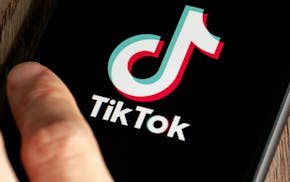Cigna's $52 billion bid to buy Express Scripts, rolled out Thursday, is another example of the nation's largest carriers angling to match UnitedHealth Group's model of combining insurance with the management of pharmacy benefits.
On one level, the deal could pull business from Minnetonka-based UnitedHealth, since Connecticut-based Cigna currently hires United's OptumRx division as its pharmaceutical benefits manager (PBM).
The broader message is that established players in health care are banding together to get bigger as frustration builds over costs and as powerful outsiders like online retail giant Amazon threaten to shake up the sector.
"The health care landscape is changing quite quickly," said John Boylan, senior equity analyst with Edward Jones. "This is just one more example of how the industry is consolidating."
PBMs manage the pharmacy portion of health insurance benefits. They negotiate prices with drug manufacturers as well as the pharmacies that dispense medications. PBMs also advise health plans on "formularies" that assign particular drugs to tiers with different copay requirements.
In late 2017, analysts estimated that Express Scripts was the nation's largest PBM, followed by Rhode Island-based CVS Health and OptumRx. In December, CVS Health proposed a $69 billion deal to acquire the Connecticut-based Aetna, which ranks No. 3 among national carriers.
Indiana-based Anthem, which is the nation's second-largest insurer, has said it plans to develop its own PBM.
Under terms of the deal announced Thursday, Cigna will buy St. Louis-based Express Scripts Holding Company in a cash and stock transaction valued at about $67 billion. The deal includes Cigna absorbing about $15 billion in Express Scripts debt.
In a news release, Cigna officials pledged the deal would help improve quality while making health care more affordable. The insurer touted "the combined company's role as the connective tissue between individuals and their health care providers."
David Cordani, the Cigna chief executive, told investors during a conference call that the merged company would "create a significantly expanded portfolio of integrated health services, through the creation of a new services business unit." The comments seemed to echo the UnitedHealth Group message, which has grown its Optum division for health services to include not just PBM services but also health care providers and a unit for health care data and analytics.
Bringing together PBMs and health insurers amounts to a vertical integration that some consumers might not immediately recognize. The pharmaceutical benefit is often embedded within an individual's broader health insurance coverage, with the PBM logo appearing in small print on the health plan ID card.
But it's vertical integration, nonetheless, and one that large employers will be watching carefully to see how it affects their costs and service, said Raymond Brown, a consultant with Mercer in Minneapolis.
Thursday's news was greeted with skepticism by some.
"This type of merger would create a market-straddling giant, with new profit-maximizing incentives that could result in restricted choices throughout the marketplace, ultimately leading to higher costs," said George Slover, senior policy counsel for Consumers Union, in a statement.
The National Community Pharmacists Association issued a statement raising concerns about competition with the proposed deal, saying in part: "The merger of UnitedHealth and Catamaran a few years ago, for instance, certainly didn't change the upward trajectory in health care spending."
The PBM industry has come under fire in recent weeks with Trump administration officials questioning whether the companies actually contribute to high drug costs. Following a yearlong dispute between drug companies and PBMs about which sector is to blame for rising medication expenses, UnitedHealth Group this week said it would provide pharmacy counter discounts via manufacturer rebates that currently are factored into overall health plan costs.
UnitedHealth significantly expanded its PBM operations in 2015 with a $12.8 billion deal to buy Illinois-based Catamaran Corp. Cigna was a key client for Catamaran, and the business has stayed with UnitedHealth since the acquisition.
United "is most immediately impacted by the combination," wrote Ana Gupte, an analyst with Leerink, in a note to investors Thursday. The Cigna account gives OptumRx a large volume of prescriptions, Gupte wrote, adding: "While margins are very low single digit at best, they provide scale to [UnitedHealth Group] in negotiating manufacturer discounts."
In a note to investors Thursday, Credit Suisse analyst A.J. Rice estimated Cigna might have accounted for about $7 billion to $8 billion of Catamaran's revenue at the time of the acquisition. It's not clear how much revenue the contract now provides UnitedHealth Group, Rice wrote, but he suggested the business has grown.
"However, we also believe that OptumRx's contract with Cigna operates at a below average margin," Rice wrote. "Thus, a loss of Cigna contract is likely to have manageable financial impact for [UnitedHealth]."
In trading Thursday, shares of UnitedHealth Group closed down less than 1 percent at $224.73. Express Scripts closed up more than 8.5 percent, while Cigna shares dropped more than 11 percent.
Christopher Snowbeck • 612-673-4744 Twitter: @chrissnowbeck
A conservative quest to limit diversity programs gains momentum in states
Olympian Kristi Yamaguchi is 'tickled pink' to inspire a Barbie doll
New Jersey is motivating telecommuters to appeal their New York tax bills. Connecticut may be next
US banning TikTok? Your key questions answered

